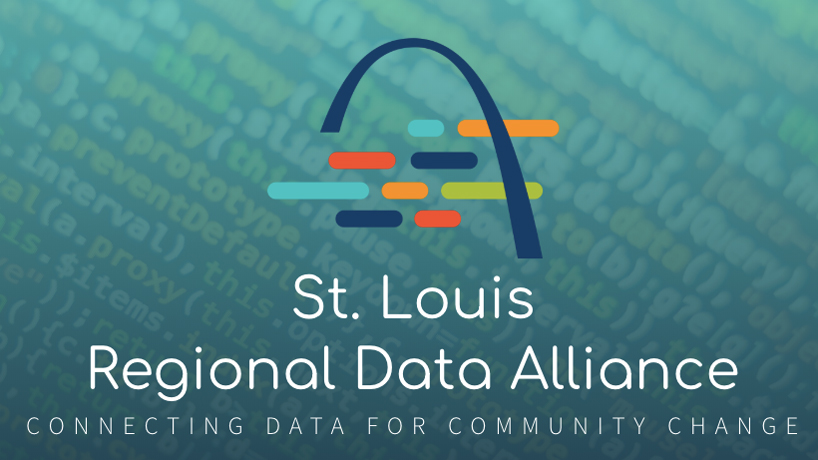
Paul Sorenson, Interim Co-Director of UMSL’s Community Innovation and Action Center, worked with the St. Louis Regional Data Alliance and other community organizations to aggregate useful COVID-19 information, including newsfeeds from major publications, social media feeds and resource guides.
In an era of social media and fake news, it can be difficult to find and organize reliable information – especially during a during a pandemic.
The St. Louis Regional Data Alliance – housed at the University of Missouri–St. Louis’ Community Innovation and Action Center – is aiming to make that easier for the St. Louis region with STL Response, a website with a dedicated COVID-19 dashboard featuring local news feeds, maps, and resource guides.
Community volunteers and the RDA banded together to collect the best resources available in one place. Paul Sorenson, Interim Co-Director of CIAC, said the RDA was well positioned to create the dashboard as its mission is to build shared data infrastructure.
For the past two years, it has worked with local governments, health care institutions and nonprofit organizations to share data with the goal of using it to improve the lives of residents in region.
“When this crisis hit, a number of us got together and started thinking about what we could do,” Sorenson said. “We had relationships with the organizations responding to the crisis — and from a data and technology standpoint, we had the capability to design something and get it out in the world.”
Some of the early brainstorming was conducted with other UMSL staff and faculty, such as Jay De Long, director of Research Enabled. Sorenson said they had already been discussing a technology collaboration when major social distancing measures were enacted.
“This hatched on March 18,” he said, two weeks before the platform launched on April 1. “We said, ‘Let’s get something together.’ It became immediately clear in looking at what was already out there – resource guides, newsfeeds from major publications, some hashtags that had been taking off – that people were moving. It was great, but the problem was you had to click from place to place to place to find all of those updates.
“We said, ‘That’s a problem we can solve. We’re going to create a dashboard that aggregates existing useful info – newsfeeds, social media feeds, resource guides, etc. – so now there is one central spot.’”
The STL Response dashboard balances established social service and news resources with grassroots efforts and will include: news feeds from trusted news sources such as the St. Louis Post-Dispatch, The St. Louis American and St. Louis Public Radio; a crowdsourced regional resource guide; an embedded Missouri Department of Health chatbot; social media feeds from the STL Community Prep and the #314Together Facebook group and Twitter hashtag; and links to resource hubs such as the United Way 2-1-1 and STL COVID-19 Mutual Aid. The first day live on April 1, about 1,600 people visited the side.
Sorenson said as a crisis hits, many people look for answers, but that’s become an increasingly complicated task in today’s media landscape.
“We want people to have the right information for them based on the circumstances they’re in,” Sorenson said. “I know a lot of folks are trying to keep up to date with the news and trying to understand how to support businesses – there are plenty of features on the dashboard they can use to connect to those resources directly.
“We also know that people may be looking for help for themselves, whether they lost a job or their business is struggling. Some of the resources here, like United Way 2-1-1, we would recommend that they contact directly.”
Sorenson said pushing the dashboard live so quickly was possible thanks to enthusiastic community volunteers such as Dave Menninger, a volunteer web developer with the RDA; Grace Kyung, project manager at Urban Strategies; Yoni Blumberg, director strategic initiatives at WePower; Julia Ho, founder of Solidarity Economy St. Louis; and Haley Shoaf, vice president of impact at LaunchCode. Volunteers from Daugherty Business Solutions and other local organizations are also pitching in for expansion efforts.
The dashboard continues to be refined, partially through feedback from the community. People can send suggestions to the RDA via email at: rda@umsl.edu.
Visit the dashboard at: http://stlresponse.org/














